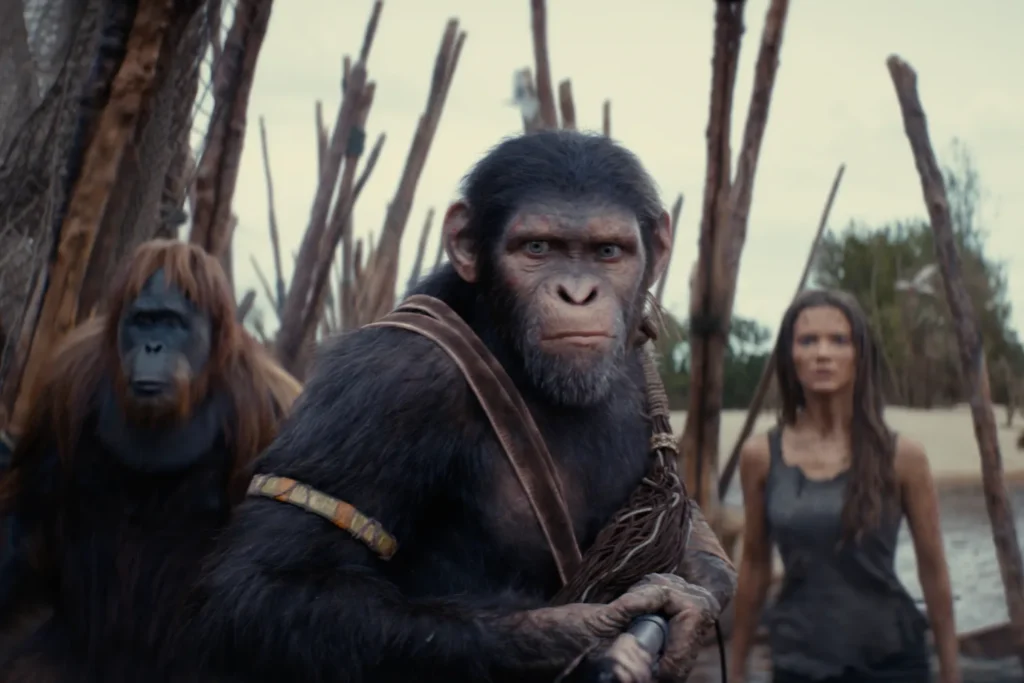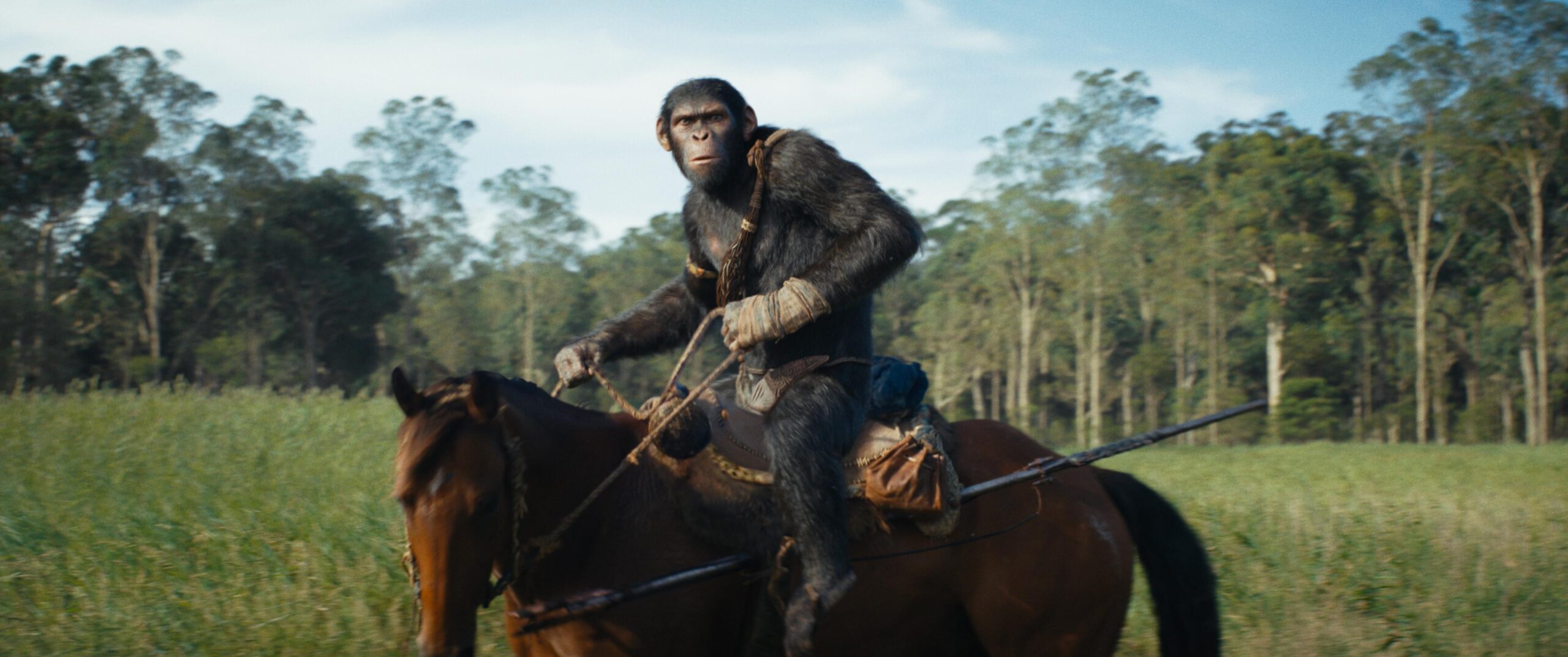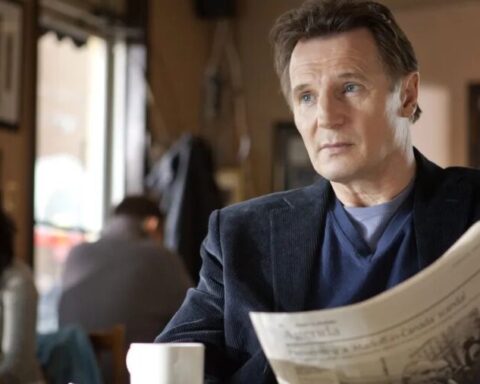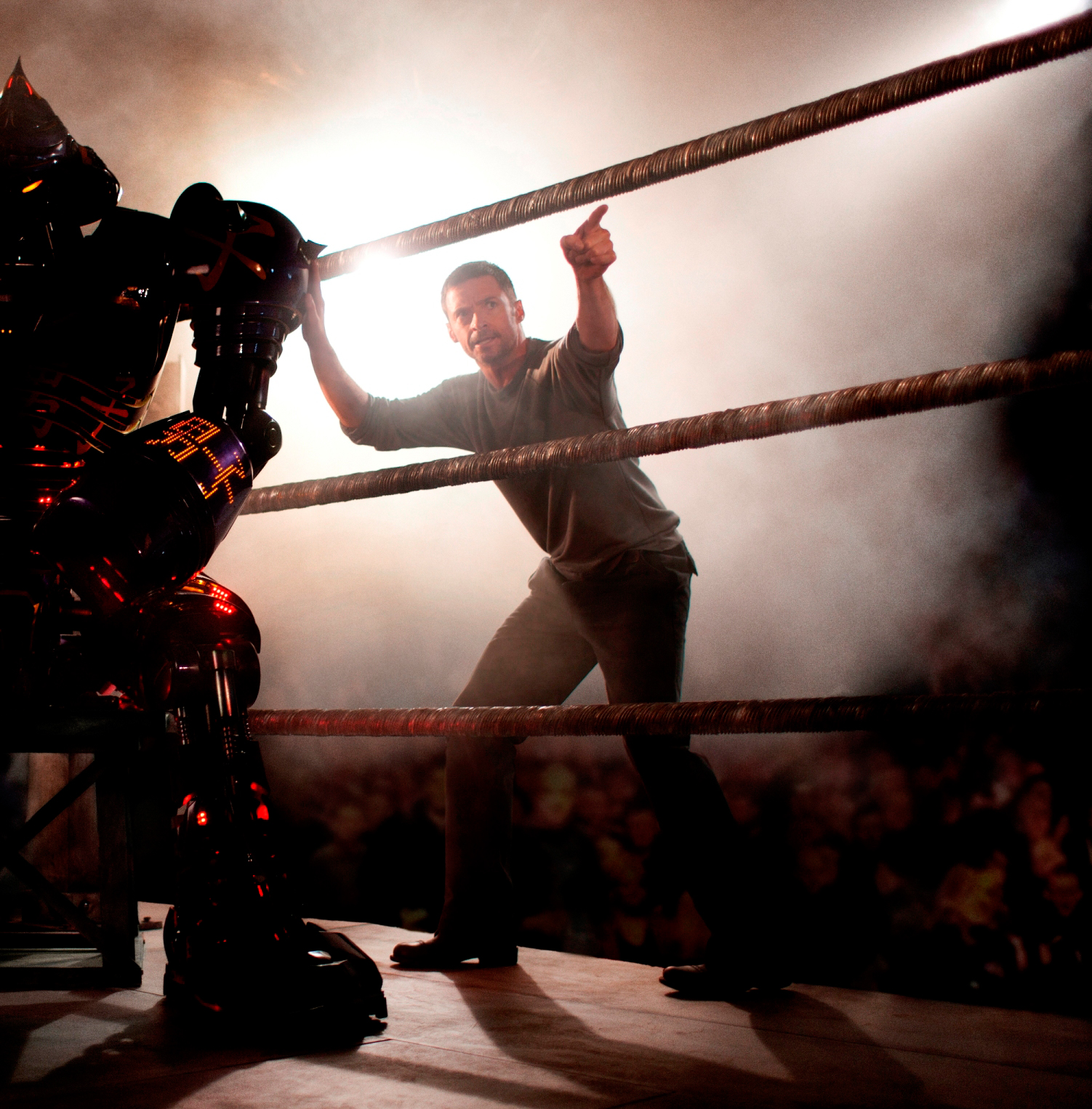Planet of the Apes trilogy, helmed by directors Rupert Wyatt and Matt Reeves, is well regarded as one of the best trilogies in modern cinema. The new installment to the franchise, directed by The Maze Runner’s Wes Ball, is set several generations after Caesar’s reign. Now, apes are the dominant species and live harmoniously, whilst humans have been reduced to living in the shadows. We follow young ape Noa, who undertakes a harrowing journey that will cause him to question all that he has known about the past and future, under the reign of a new tyrannical ape leader. Successfully managing to pay homage to the trilogy whilst delivering something entirely new and standing on its own two feet, Kingdom of the Planet of the Apes is a worthy continuation of the franchise. The performances are great, the visuals are jaw-dropping and the story, whilst taking its time, is engaging from start to finish.
Despite Caesar not being a part of the new era of the franchise, his blood runs through its veins. The script explores Caesar’s teachings, how he reigned, and how many have perceived his message. Some have warped it to fit their own sly agendas, whereas others use it as a basis for their morals and try to live harmoniously with kindness. Either way, Caesar’s legacy lives on through the franchise, and his presence is as large as when he was front and center. The script cleverly explores the idea of legacy and the impact this can have, both positively and negatively. As well as this, the new characters are great successors, particularly lead Noa. Played wonderfully by Owen Teague (IT), his young age gives a nice coming-of-age element to the film as we see him explore the world around him, learn of its past and decide how he wants to live his life. His character is thoroughly developed, and if this installment is anything to go by, we could have someone as powerful and memorable on our hands as Caesar.

The rest of the performances outside of Teague’s immaculate turn are also great. Playing Proximus Caesar, our main antagonist, is Kevin Durand. Giving his second memorable performance of the year after playing Peter in the horror comedy Abigail, he manages to be equal parts jovial and menacing, making for an intriguing and unique villain. Our main human protagonist Mae is played by Freya Allen (The Witcher), who does the best with what she is given. Her character is the most underdeveloped of all, which may well be a creative choice given that apes rule over humans, though it would’ve been nice to get to know her better. Towards the third act of the film, her motive is a little unclear, though Allen continues to deliver. The cast also includes Peter Macon, Travis Jeffrey and Neil Sandilands giving good voice performances, and the great William H. Macy (Fargo) as Trevathan, a human who reads to villain Proximus Caesar to teach him about the world.
The visuals within all the previous planet of the ape movies are always astounding, but somehow, Kingdom of the Planet of the Apes manages to be the most aesthetically stunning entry to the franchise. Care and focus are taken to showcase the surroundings, and everything is luscious green and expansive. Our lead character being on a journey helps us to discover plenty of the world, and the cinematography is consistently engaging. A large portion of the scenery was shot on location without the use of a green screen – it shows. Even more impressive than the cinematography is the motion capture of the apes themselves; they without a doubt look real in every frame. From close-ups of Noa’s eye to fast-paced fight scenes, it’s astonishing how fantastic the apes look.

Clocking in at almost 2.5 hours, this is the longest entry into the franchise so far. With a slower pace than we’re used to seeing from these films, many may not appreciate how creeping Kingdom is to start. It remains engaging, the first act full of character development and scene setting, but it’s around halfway that things really kick into gear. There is action aplenty, with multiple fight sequences, high stakes and an overall mission that makes for an exciting watch. The dialogue is well written, with thorough development in plot and character and a lot of gravitas to the lines our characters are delivering. Even with its slow approach, it packs a punch and has many moving, emotional moments, particularly where Noa’s story is concerned. It cleverly manages to incorporate light humor that lands, managing to stay away from feeling quippy and cheap. It perfectly pays homage to its predecessors by lightly reminding us of the trilogy that got us here, speaking of Caesar’s reign and showing us glimmers of old characters in the new ones. Slow start aside, the storyline is engaging and worth the longer runtime.
Kingdom of the Planet of the Apes is a blockbuster worth seeing on the big screen. From its dazzling visuals to its incredible motion capture, memorable score to well-developed characters, it offers plenty to impress viewers. By managing to deliver something we haven’t received from the franchise thus far, it manages to excite audiences for what could come, keeping us invested in this story and this world despite fan-favorite Caesar not being a part of it. This may also be director Wes Ball’s best flick yet and reassures us that the big screen adaptation of Zelda is in safe hands. Kingdom of the Planet of the Apes may not quite be as good as the trilogy it follows from, but it sure comes close.






